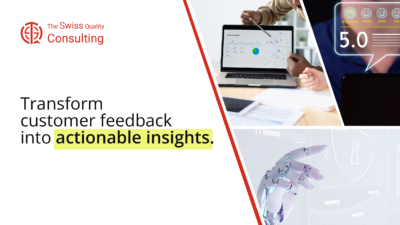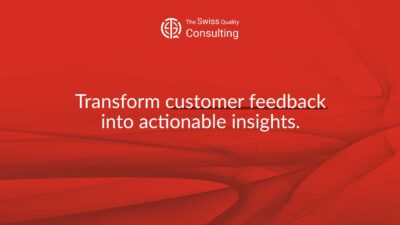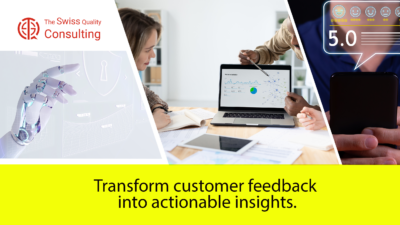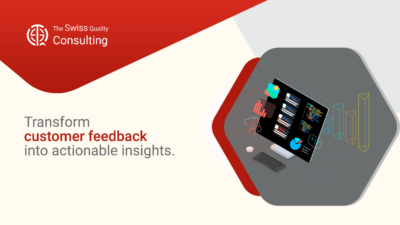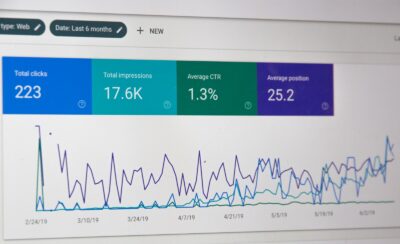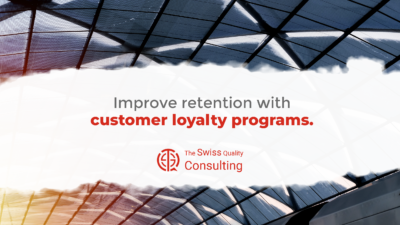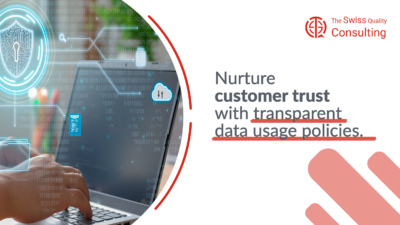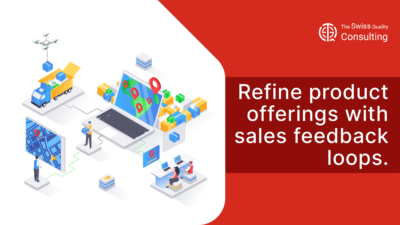The Value of Customer Feedback in Change Management: Transform customer feedback into actionable insights
Change is an inevitable aspect of business growth and sustainability. In this dynamic landscape, customer feedback emerges as a pivotal resource, providing businesses with real-time insights and actionable data.Transform customer feedback into actionable insights!
Feedback acts as the voice of the customer, allowing business leaders to make informed decisions and steer the organization in a direction that aligns with customer needs and market demands. It serves as an early warning system, flagging potential issues before they escalate, and highlighting opportunities that may otherwise be overlooked.
Integrating customer feedback into change management processes ensures that transformations are not just internally driven but are also responsive to the market. For instance, during a product revamp, customer opinions can guide the development team to prioritize features that offer real value, rather than what seems innovative on paper. Assessing the impact of change through the lens of customer feedback helps companies to align their strategic objectives with customer satisfaction, leading to a more agile and responsive approach to business evolution.
Executive Coaching: Fine-Tuning Leadership to Act on Insights
Executive coaching plays a transformative role in enabling leaders to effectively interpret and act upon customer feedback. Coaches equip executives with the tools and mindset necessary to sift through vast amounts of feedback, discerning what is critical and what is noise. They foster a leadership style that values feedback as a strategic asset, encouraging leaders to ask the right questions and listen actively to customer responses.
There are numerous case studies showcasing executive success resulting from a focus on customer feedback. A notable example is a tech giant that pivoted its product strategy based on feedback from its enterprise users, leading to a suite of products that now dominate the market. Executive coaching was instrumental in this process, guiding the leadership team to challenge their assumptions and adapt to customer needs.
Effective Communication: Bridging the Gap Between Feedback and Action
Effective communication is the cornerstone of transforming customer feedback into organizational action. It involves not only listening to customers but also ensuring their insights are communicated effectively across all levels of the organization. This requires a strategic approach where feedback is systematically collected, analyzed, and then shared through the appropriate channels.
Developing a culture where customer feedback is valued involves regular internal reporting, sharing success stories where customer input led to positive change, and training staff to understand the importance of customer-centricity. Moreover, using internal social platforms to broadcast customer testimonials and feedback can significantly enhance employee understanding and engagement with customer-focused initiatives.
Driving Business Success Through Customer-Centric Strategies
Companies that place customers at the heart of their business strategy tend to achieve greater success. This customer-centric approach means constantly evolving based on customer feedback. Analyzing feedback to understand the customer experience is not just about resolving complaints but also about seizing opportunities to innovate and differentiate from competitors.
Tools like Net Promoter Scores (NPS) and Customer Satisfaction (CSAT) indices are integral for businesses to quantify and track customer feedback. Furthermore, Customer Relationship Management (CRM) systems can be instrumental in collecting and operationalizing feedback. For instance, a CRM could trigger a service call if feedback from a purchase indicates a less-than-satisfactory experience, allowing companies to rectify issues proactively.
Management Consulting for Data-Driven Decision Making
Management consultants play a crucial role in translating raw customer feedback into strategic plans that can be implemented. They apply analytical models and frameworks to dissect feedback, turning it into a clear set of priorities and actions. By doing so, consultants help businesses avoid common pitfalls associated with managing large datasets, such as confirmation bias or data overload.
Best practices in consultancy for customer feedback analysis involve using advanced data analytics tools to uncover trends and patterns that inform strategic decisions. Consultants often advise on establishing continuous feedback loops where customer input is regularly solicited, analyzed, and then fed back into the decision-making process, ensuring that strategies remain relevant and customer-focused.
Generative Artificial Intelligence: Predicting and Acting on Customer Trends
The advent of Generative Artificial Intelligence (AI) has revolutionized the way businesses analyze customer data. AI systems are now capable of not only processing vast amounts of customer feedback at unprecedented speeds but also predicting future trends by identifying patterns that are invisible to the human eye. These systems can generate actionable insights that inform product development, marketing strategies, and customer service enhancements.
Looking to the future, the implications of AI in understanding customer feedback are vast. AI can be expected to provide a more nuanced understanding of customer sentiments, anticipate customer needs before they are explicitly expressed, and personalize customer interactions to a high degree. The businesses that can harness this technology effectively will be able to stay ahead of market trends and maintain a competitive edge.
Cultivating Leadership and Management Skills for Customer-Driven Growth
Leadership and management development programs now underscore the importance of valuing customer feedback as a tool for growth. Training programs are increasingly focusing on equipping leaders with the skills to integrate customer feedback into the decision-making process. This involves fostering active listening skills, empathy, and the ability to translate customer insights into strategic actions.
The connection between leadership skills and customer satisfaction is clear and well-documented. Leaders who are adept at responding to customer feedback tend to drive organizations that are more adaptive, more innovative, and ultimately more successful in meeting customer needs. This customer-driven approach is a significant factor in achieving sustained business growth and high customer retention rates.
Staying Informed: Leveraging Business News for Customer Insights
Business news is a valuable resource for identifying emerging customer trends and feedback on a macro scale. It can provide insights into consumer behavior, market disruptions, and competitive strategies that can inform a company’s approach to customer feedback. Staying informed through business news helps organizations to anticipate changes in customer expectations and adapt accordingly.
There are numerous tools and platforms that organizations can use to monitor business news and integrate this information into customer feedback analysis. These tools can help businesses correlate external news events with internal feedback data, providing a comprehensive view of the market and enabling more informed strategic decisions.
Project Management: Implementing Customer Feedback into Project Milestones
Project management methodologies are evolving to incorporate customer feedback at various stages of project planning and execution. Techniques such as Agile and Lean emphasize the importance of customer collaboration and continuous feedback. By integrating customer insights into project milestones, organizations can ensure that their projects remain aligned with customer needs throughout the development process.
There are several case studies where project outcomes have been significantly enhanced through the integration of customer feedback. Projects that actively incorporate customer insights tend to be more successful in delivering solutions that customers find valuable and are willing to adopt. This customer-focused approach to project management not only enhances the end product but also fosters a strong relationship between the business and its customers.
#CustomerFeedback, #BusinessInsights, #ChangeManagement, #ExecutiveCoaching, #EffectiveCommunication, #BusinessSuccess, #ManagementConsulting, #GenerativeAI, #LeadershipSkills, #ProjectManagement


